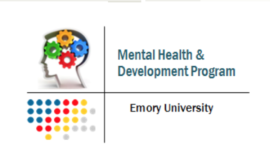North American Prodrome Longitudinal Studies Long-Term Follow-Up (NAPLS LTF)
We are currently seeking individuals who previously participated in our research programs dealing with adolescent and young adult development to find out how you are doing now.
Our program is now conducting one-time, follow-up interviews to learn about the long-term health outcomes and predictors of well-being among individuals who were previously enrolled in our program between the years 2001 and 2019. If you participated in studies with us during this time, you may be eligible to participate in the NAPLS Long-Term Follow-Up.
About the study:
- Participants are asked to complete a clinical interview and a series of online questionnaires.
- Participation in this study includes a single, online assessment of symptoms, functioning, and other measures.
Enrollment criteria
- Individuals who previously participated in the NAPLS research program at Emory University (also known as the Mental Health and Development Program) between 2001 and 2019.
Enrollment Status
- Enrolling eligible participants for a limited time.
If you are a former participant and have not yet been contacted by us to schedule a follow-up interview, it is possible that we do not have your current contact information. Please contact us to share your updated contact information and let us know if you are interested in participating in the long-term follow-up study.
Computerized Assessment of Psychosis-Risk (CAPR)
An ongoing study, including both healthy individuals and those experiencing clinical risk signs. The goal is to better understand how unusual thoughts may impact the way individuals complete different tasks that could be developed into screening tools to use in the community for mental health. Another goal is to provide more understanding about how various aspects of cognitive functioning may be impacted and to develop new ways to improve symptoms and cognitive functioning.
About the Study
- Participants are asked to complete computerized tasks, interviews, and pen and paper questionnaires.
- Participation in this study lasts up to 2 years and includes opportunities for a 12-month and 24-month follow-up assessment of symptoms, functioning, and other measures.
Enrollment Criteria
- Participants include adolescents and young adults ranging from ages 12-34 years.
- No history of serious head injury, or neurological disorder.
- No previous diagnosis of a psychotic disorder (e.g., schizophrenia, schizoaffective disorder, schizophreniform, delusional disorder, bipolar with psychotic features, depression with psychotic features).
Enrollment Status
- Closed. No longer enrolling participants.
Georgia and Illinois Negative Symptoms Study (GAINS)
An ongoing study to investigate the negative symptoms related to risk for serious mental illness, specifically using a new clinical measure called the Prodromal Inventory for Negative Symptoms (PINS).
About the Study
- Participants are asked to complete a clinical interview and a series of online questionnaires.
- Participation in this study lasts up to 1 year and includes the opportunity for a 12-month follow-up assessment of symptoms, functioning, and other measures.
Enrollment criteria
- Adolescents and young adults ranging from ages 12-34
- No history of serious head injury, or neurological disorder
- No previous diagnosis of a psychotic disorder (e.g., schizophrenia, schizoaffective disorder, schizophreniform, delusional disorder, depression with psychotic features)
Enrollment Status
- Closed. No longer enrolling participants.

